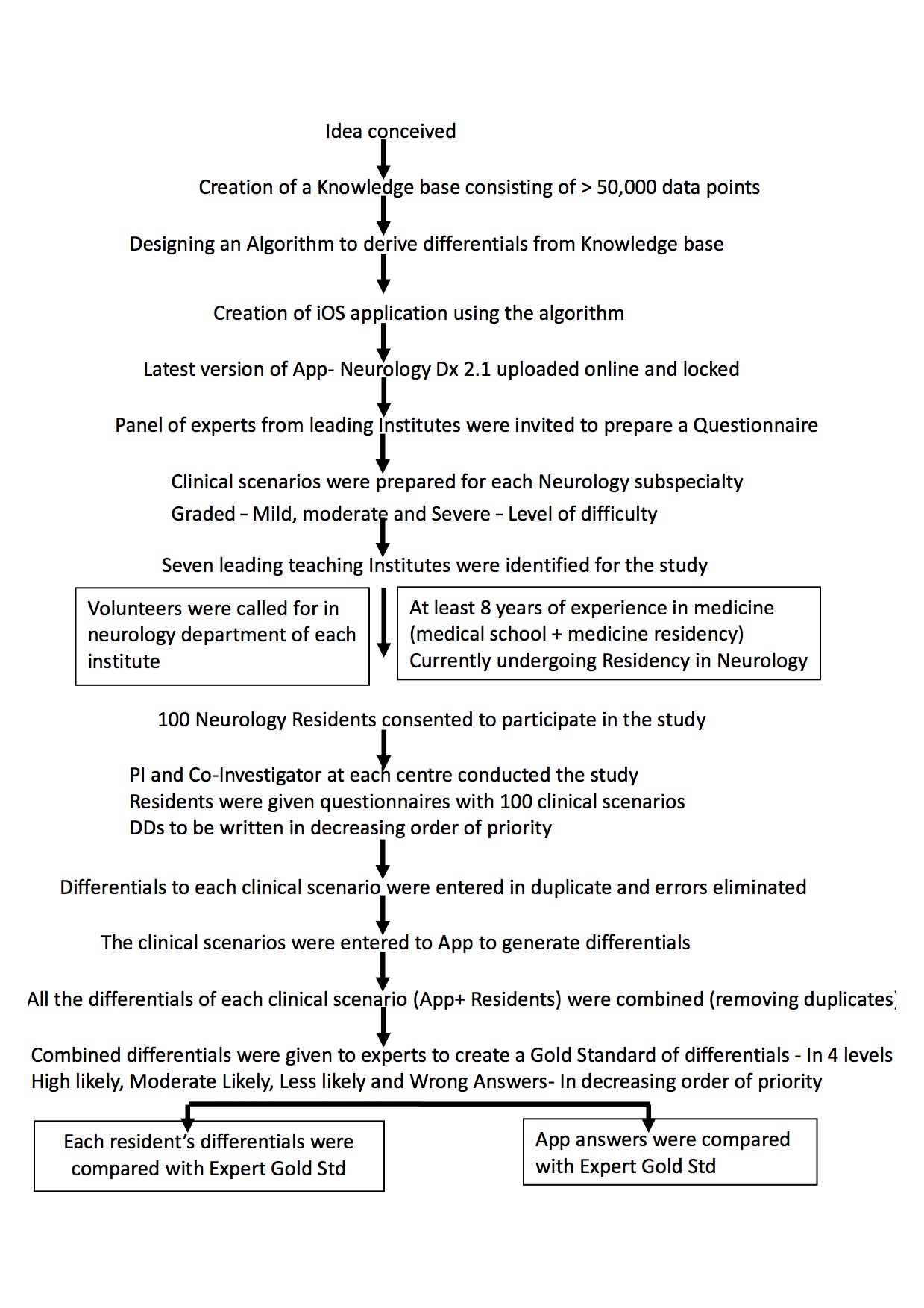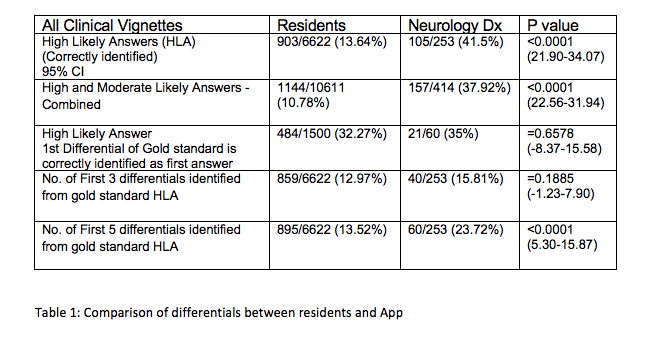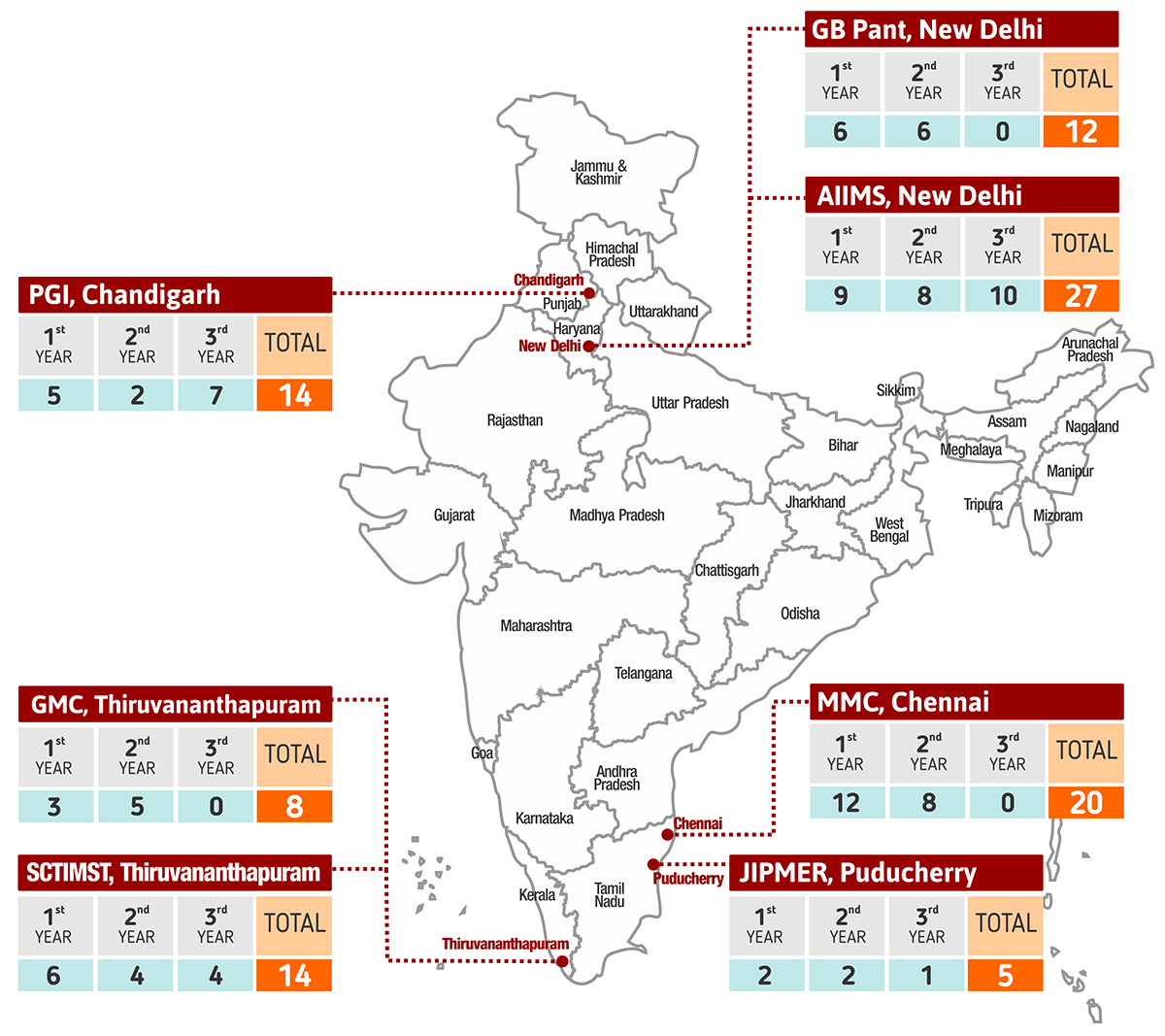Session Information
Date: Tuesday, September 24, 2019
Session Title: Education / History in Movement Disorders
Session Time: 1:45pm-3:15pm
Location: Agora 2 West, Level 2
Objective: To test the hypothesis that the differentials generated by the Mobile Medical Application are more clinically relevant and complete to the ones derived by neurology residents.
Background: A mobile medical application (Neurology Dx®) on iOS platform was created to derive differential diagnoses from a set of patient attributes viz. symptoms, signs, imaging data and lab values. This study did a head to head comparison between Neurology residents and the mobile application in the ability to deduce relevant differential diagnoses from clinical vignettes pertaining to Movement Disorders.
Method: A multi-center, cross sectional study was designed incorporating seven leading tertiary care teaching neurological institutes. One hundred neurology residents from these centers participated in the study. Participating residents were asked to deduce relevant differential diagnoses to a set comprising of of 15 Movement Disorder vignettes. A group of Experts were empanelled to derive gold standard answers to the clinical vignettes, which were classified into ‘‘high likely’’, ‘‘moderate likely’’, ‘‘less likely’’ and ‘‘wrong” answers. A head to head comparison was later carried out between Neurology residents and the app (Neurology Dx®)against the gold standard differentials derived by experts.
Results: Sixty Movement Disorder clinical vignettes in sets of 15 vignettes each were tested on 100 neurology residents(one set of 15 vignettes) and also on the App(60 Vignettes). Residents correctly identified the gold standard “high likely” answers with a frequency of 13.64% as against 41.5% by the App (95% CI: 21.90-34.07, P < 0.0001). On combining “high” and “moderate likely” answers, residents could accurately identify gold standard differentials with a frequency of 10.78%as against 37.92% by the App, (95% CI 22.56-31.94, P < 0.0001). Residents correctly identified the first “high likely” gold standard answer as their first “high likely answer” in 32.27% as against 35% (95% CI:8.37-15.58, P = 0.6578).
Conclusion: In this era of artificial intelligence, a mobile medical application based on a predefined knowledge base and smart algorithm can arm the neurologist by complementing and augmenting the necessary skills required to deduce a comprehensive list of differential diagnoses. (CTRI/2017/06/008838)
References: 1. Balla J, Heneghan C, Goyder C, Thompson M. Identifying early warning signs for diagnostic errors in primary care: a qualitative study. BMJ Open. 2012;2:1–9. pmid:22983786. 2. Berner ES, Graber ML. Overconfidence as a cause of diagnostic error in medicine. The American journal of medicine. 2008;121(5 Suppl):S2–23. pmid:18440350. 3. Kostopoulou O, Oudhoff J, Nath R, Delaney BC, Munro CW, Harries C, et al. Predictors of diagnostic accuracy and safe management in difficult diagnostic problems in family medicine. Med Decis Making. 2008;28(5):668–80. pmid:18556634. 4. Graber ML, Kissam S, Payne VL, Meyer AN, Sorensen A, Lenfestey N, et al. Cognitive interventions to reduce diagnostic error: a narrative review. BMJ Qual Saf. 2012;21(7):535–57. pmid:22543420. 5. Semigran HL et al. Comparison of Physician and Computer Diagnostic Accuracy. JAMA Intern Med. 2016 Dec 1;176(12):1860-1861
To cite this abstract in AMA style:
V. Vishnu, P. Vinny, R. Rajan, V. Goyal, P. Srivastava, V. Lal, P. Sylaja, L. Narasimhan, S. Dwivedi, P. Nair, D. Ramachandran, A. Gupta. Neurology Residents Versus a Mobile Medical Application in deducing differential diagnoses in Movement Disorders: A multi-center, cross-sectional, observational study [abstract]. Mov Disord. 2019; 34 (suppl 2). https://www.mdsabstracts.org/abstract/neurology-residents-versus-a-mobile-medical-application-in-deducing-differential-diagnoses-in-movement-disorders-a-multi-center-cross-sectional-observational-study/. Accessed April 20, 2025.« Back to 2019 International Congress
MDS Abstracts - https://www.mdsabstracts.org/abstract/neurology-residents-versus-a-mobile-medical-application-in-deducing-differential-diagnoses-in-movement-disorders-a-multi-center-cross-sectional-observational-study/



